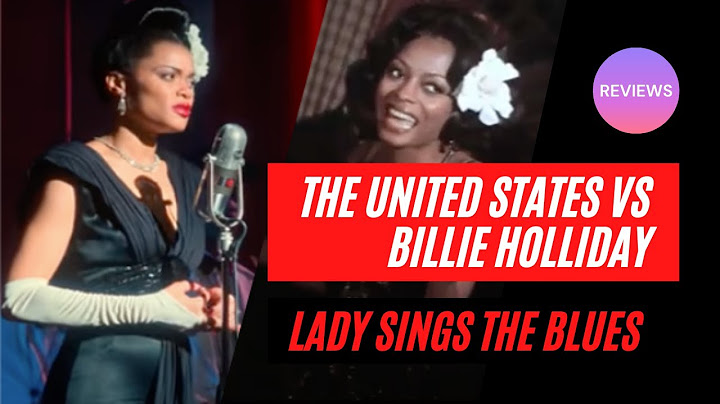Autumn 1942. As the Nazis struggle to take hold of Stalingrad, Russian sniper Vassili Zaitsev is built into a local hero by propaganda officer Danilov, his expert shooting skills boosting fading morale. His supremacy is challenged by the arrival of crack German marksman Major Konig, and an intensely private battle begins as the war rages around them. Show Original Title: Enemy At The Gates Reputedly the most expensive Euro project ever produced, it's easy to see where the money went on Jean-Jacques Annaud's thoroughly entertaining World War II drama. In tackling a real-life chapter from the Russian war, Annaud certainly doesn't skimp on the breathtaking spectacle. Early scenes of the Russian army on boats being bombarded by aircraft - footsoldiers scrabbling over the sides to safety are shot by their officers for deserting - and the subsequent scramble across Stalingrad Square are writ large and spectacular, the mêlée captured in muted, harrowing tones. Surprisingly believable as a man of action, Law looks every inch the haunted sniper. His scenes with Fiennes capture the warm friendship between the two, but both actors struggle to find depth in characters that lack sides and shades. The story throws up interesting brain food about the nature of propaganda and the paradoxes of Zaitesev's (Law) popularity – he is a lone hero in a land that believes in the equality of people – yet fails to follow these themes up. Moreover, the three-way love story between Zaitsev, Danilov (Fiennes) and literate soldier Tania (an adequate Weisz) fails to convince. While the single love-making scene gets a believable scene of grabbed intimacy, the ménage-à-trois often lapses into a movie-movie feel that is at odds with the realistic tone of the combat footage. Similarly, the script lacks the political intelligence (an overly earnest voice over intones, "Europe lies crushed beneath the Nazi jackboot") and the sense of complexity that marks out the best of epic cinema. Compounding the simplistic tone of the piece, Bob Hoskins lends an overwrought presence as Khrushchev. Yet where Enemy At The Gates really impresses is in its central tussle between natural sharpshooter Zaitsev and clinical assassin Konig (Harris). Annaud gets fascinating mileage in the duel of wits between the two men – to ascertain Zaitsev's position, Konig sends out a Russian captive dressed as a Nazi, hoping Zaitsev will shoot – filled with nifty sniper technology. The duel reaches its high point in a gripping, expertly crafted set-piece as, stranded without his gun, Zaitsev takes refuge behind a cooker in a derelict factory and Konig is forced to flush the Russian out. The quality turn of the movie, Ed Harris is great as a reserved, calculating marksman, but always hints at a buried humanity (as in his scenes with a Russian moppet), never lapsing into the typical Nazi monster. For all its grit, Enemy At The Gates is a throwback to older war movies in its lack of historical savvy and caricatured love story. Still, the central duel serves up a gripping battle of wits. Related ArticlesJust so you know, whilst we may receive a commission or other compensation from the links on this website, we never allow this to influence product selections - read why you should trust us Stalingrad, 1942-43. It was the bloodiest single battle in the known history of war, with more than one million perishing of wounds, disease, and the bitter cold of winter. Like Napoleon a century earlier, Hitler came to Stalingrad with the aim of breaking the spirit of Russia, and, also like the French little general, he was faced with catastrophic losses. The toll taken upon the German army at Stalingrad represented one of the turning points of World War II. Most history experts agree that had Hitler not persisted in trying to take the Soviet city in what turned into a personal contest with Stalin, the Third Reich might have triumphed on its western front. Like Joseph Vilsmaier's powerful 1993 feature, Stalingrad, Enemy at the Gates elects to view this conflict from the point-of-view of a limited group of characters, rather than attempting to tackle the battle in an epic format. The film takes actual historical figures and imbues them with traits that allow their private struggle to mirror the overall conflict. However, as interesting as some of the ideas underlying the film are, and as technically adept as the production is, I had a hard time liking Enemy at the Gates. There's an emotional coolness to the picture and the characters are kept at a distance. There's also a lack of dramatic tension. The movie always moves in the direction of an inevitable conclusion, with minimal suspense along the way. As fascinated as I was by the historical backdrop against which the struggle occurs, I found it difficult to care one way or another about which characters lived or died.   The battle sequences, especially those with the bombs bursting in the air above Stalingrad, are impressive, as is the attention to detail. There's a little Saving Private Ryan in some of the early sequences. As soldiers are being transported across the Volga River to Stalingrad, their boats are strafed by Luftwaffe aircraft. Dozens are killed or injured, and those who try to escape by jumping overboard are shot by their own commanders. The verisimilitude of the film's battle re-creations is enhanced by a grim atmosphere (accomplished largely through dim lighting, an abundance of browns and grays, and a lack of bright color) but it doesn't extend to the characters, none of whom are more than shadows of real human beings. The epilogue, which has a tacked-on feel, is out-of-place and designed largely to placate audiences distressed by the film's downbeat tone.  Director Jean-Jacques Annaud is not known for developing emotionally rich cinematic tapestries. His films often come across as visually stimulating but aloof. Enemy at the Gates falls prey to those characteristics. The movie squanders too many opportunities. For those who appreciate history and want to understand a little more about what went on during the battle of Stalingrad, I recommend Vilsmaier's movie. Enemy at the Gates hints at, but never achieves, greatness. Instead, for all of its impressive technical qualities, it ends up as a mediocre and mostly forgettable war film. Was Enemy at the Gates a good movie?Entertaining but cheesy, war B movie. The writing can be hokey and mopey too. Ed Harris is good as a aging, softspoken but manipulative Nazi sniper. Yet its irritating hearing Russian soldiers speak in British Accents, only the American Ron Perlman attempts an actual Russian one. What did Russia think of Enemy at the Gates?Some Red Army Stalingrad veterans were so offended by inaccuracies in the film and how the Red Army was portrayed that on 7 May 2001, shortly after the film premiered in Russia, they expressed their displeasure in the State Duma, demanding a ban of the film but their request was not granted. What is the story behind enemy at the gate?The movie Enemy at the Gates, directed by Jean-Jacques Annaud and starring Jude Law, Ed Harris, Rachel Weisz and Joseph Fiennes is a fictionalized account of the true story of Vasilii Zaitsev, a Soviet sniper who won fame during the battle of Stalingrad. How historically accurate is the movie Enemy at the Gates?Is “Enemy at the Gates” based on a true story? Yes, “Enemy at the Gates” is loosely based on the real-life events that occurred during the Battle of Stalingrad. While the movie takes some creative liberties, it does incorporate elements of the actual historical event. |




















